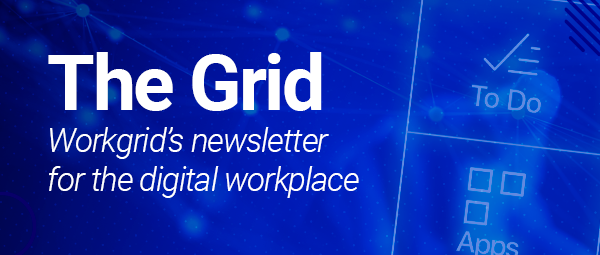In the shadowy corridors of the modern enterprise, a specter looms. It haunts every department and silo with its presence. It is the Boogeyman known as ‘Digital Friction’ — the ever-growing, complicated, unyielding poltergeist that devours employee time and attention. Employees whisper in frustration about their days lost searching for information. Hours are spent grinding through a labyrinth of outdated data, cryptic information, and processes that bring most people to their knees. Software dedicated to ‘Enterprise Search’ was promised to vanquish the darkness, transforming the terror of search —and yet—the specter remains.
We have to ask ourselves, why?
Understanding Enterprise Search Challenges
There are several reasons why information overload persists and, conversely, why enterprise search functionality fails the user. The primary reasons are culture, information management, and strategy – yet from a technical perspective, we see other levers at play, namely:
Data Abundance:
Modern enterprises generate vast amounts of data daily, from internal reports and collaboration binaries, data entries, wikis, transactions, and employee communications. Traditional enterprise search technologies often attempt to boil the ocean, and the first error is failing to manage information overload.
Integration Issues:
As businesses continuously adopt new digital tools and platforms, data becomes both layered and siloed across disparate systems. Traditional search engines typically struggle with this lack of interoperability, failing to provide a unified view of information. This fragmentation complicates the search process, making it difficult for employees to find the correct information at the right time.
User Experience:
Traditional enterprise search interfaces often lack intuitiveness, requiring specific keywords or complex query languages that can alienate non-technical users. This complexity reduces overall engagement and prevents users from effectively leveraging organizational knowledge.
The Need for Conversational AI with Intelligent Insights & Discovery
AI Work Assistants are not merely a technological advancement; they are a paradigm shift in information discovery — a compelling answer to the persistent question of how to effectively harness corporate information and retrieve quality content from the vast oceans of data that modern enterprises generate. As traditional search technologies falter under the weight of their limitations, conversational AI stands ready to not just bridge the gap but redefine the landscape of enterprise search. A few reasons for this are capabilities that change the relationship between the information access and the user:
Natural Language Processing:
At the core of AI Assistants is natural language processing (NLP), which allows the system to understand and interpret human language in a way that feels natural to users. This capability enables employees to interact with the system using conversational language, significantly lowering the barrier to effective information retrieval.
Contextual Understanding & Response:
Unlike traditional search methods, AI Assistants can analyze the context of a query, considering the user's previous interactions, their specific role within the organization, and where they have access. This context-awareness helps deliver more accurate and relevant search results tailored to the needs of each user. Furthermore, when a response is generated, it can be directed to an app, summarized information, a workflow, or an amalgamation from various sources with appropriate citations. This changes both the experience and increases information scent as employees forage for the correct information.
Continuous Learning:
Conversational AI Assistants are designed to learn and adapt over time. These systems can be refined by analyzing search patterns and user feedback. As well, underlying AI models are evolving, helping bolster contextual understanding engines. AI Assistants also provide digital workplace leaders with critical information to understand what employees are seeking, allowing them to tailor their deployment strategies and use cases to the right audience. This paradigm becomes a shift in both the experience of the end-user and the right sizing of information discovery strategy as the organization's technical stack evolves and the size corrects.
![[asset] Chat to ServiceNow Knowledge](https://images.ctfassets.net/z7p73u8c0thn/2CTY7AFuEGHzECAu4KiUCo/ff8f45dc0674e0bab064bd55a03d8b31/Chat_to_ServiceNow_Knowledge.png?w=1200&h=1061&q=60&fm=png&bg=transparent)
Workgrid's AI Assistant Empowering Organizations
Workgrid's AI Assistant exemplifies the power of conversational AI to transform the experience of information discovery. By integrating seamlessly into daily workflows, enterprise apps, and data repositories in an intelligent manner - Workgrid's Assistant empowers organizations to discover and retrieve information efficiently. Employees no longer must click and navigate through the haunted mazes of fragmented data and links. Instead, they engage in natural and intuitive dialogue with their AI Assistant by their side - wherever they happen to be. They can ask questions and receive precise, contextually relevant answers. This shift boosts efficiency and democratizes access to information, making it as easy and natural as conversational exchanges in the break room.
![[asset] conversational-ai-at-work-1920x1080](https://images.ctfassets.net/z7p73u8c0thn/4VC9HpyA56j1npPmFuJmr9/306f149950f9b9cd9b32980404070434/conversational-ai-at-work-1920x1080.jpg?w=1200&h=675&fl=progressive&q=60&fm=jpg&bg=transparent)
The Promise of AI
The promise of AI Assistants can exorcise the ghosts of digital friction that once haunted enterprise corridors. As this technology continues to evolve and integrate into more aspects of our digital workflows, its potential to refine how we interact with information is limitless. For organizations still wrestling with the specter of inefficient search, embracing conversational AI gifts a way forward into the future, where data and information become a tool - not a terror.




